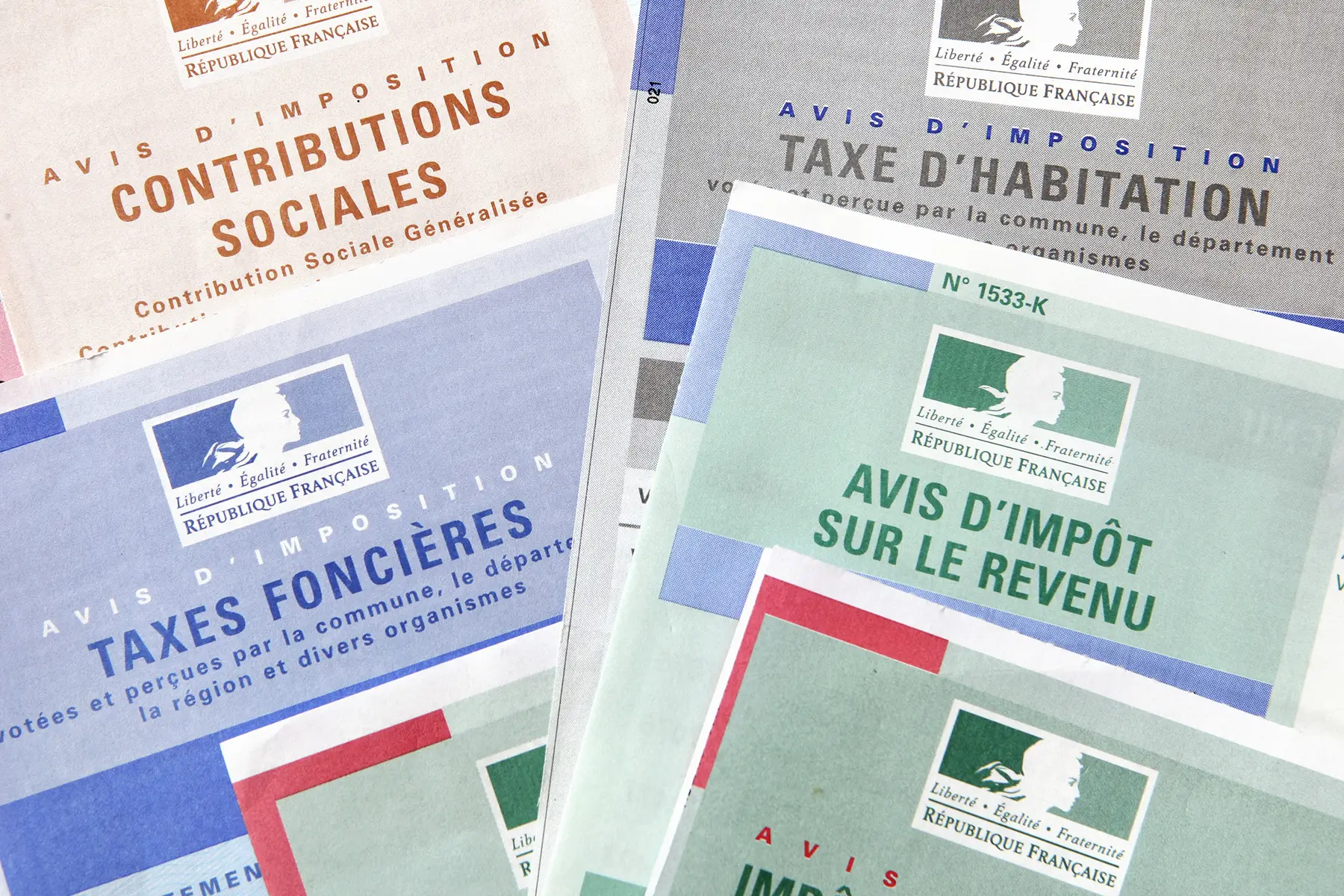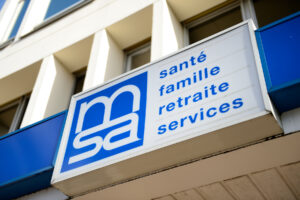Living in France requires several identification numbers. For example, you cannot do much without your numéro de sécu (social security number). If you need access to highly subsidized healthcare, a variety of social services, or employment, you must apply for a national registration number as soon as possible.
Managing finances across borders can be challenging when relocating, which is why many expats use services like Wise to simplify international money transfers and manage multiple currencies. More on that later.
Additionally, if you plan to work and pay taxes in France, you’ll also need a tax ID (TIN) and maybe a business ID, too. Below, you’ll find all the steps to understand and apply for the relevant ID numbers in France:
ID numbers in France
If you’re planning to move to France for a while, these are the main ID numbers that you will need:
- National registration number – your social security number, officially the numéro d’identification au répertoire de l’Insee (NIR), but commonly known as the numéro de sécu.
- The tax identification number (TIN) – in France, this is the numéro fiscal de reference or numéro d’identification fiscale (NIF). You’ll most commonly hear it called numéro fiscal and you will need it to file taxes.
- The Siret/Siren – You will need one of these business ID numbers if you plan to start your own company or work as a freelancer (autoentrepreneur or microentrepreneur) in France.
The French national registration number
The national registration number acts as your social security number while in France. It is sometimes referred to as the NIR (numéro d’identification au répertoire de l’Insee), but its most common name is the numéro de sécu.

Each number is unique and comprises 13 digits. This data provides information about your sex, month and year of birth, and where you were born (if abroad, this starts with 99). The number ends with a two-digit control key.
Then numéro de sécu is on your health insurance card – the carte Vitale. You must give this number whenever you contact social security structures like the Family Allocation Fund (CAF), the Jobs Center (Pôle Emploi), or any healthcare services. Moreover, your employer will reference it on your pay slips.
Using your national registration number
The numéro de sécu has several uses, including:
- Accessing social security
- Identification for healthcare
- Registering as an employee
The national registration number is used by social structures like the Jobs Center (Pôle emploi), local employment agencies, supplementary health insurance organizations, the Family Allocation Fund (CAF – PDF in English), and the Maisons départementales des personnes handicapées (MDPH). To claim social security benefits for you or one of your family members, you will need to have your carte Vitale at the ready.
Within the French healthcare sector, your national registration number usually corresponds to your national health identity (identité nationale de santé – INS). The healthcare system uses this number to identify you and to differentiate between patients with the same name, for example. It’s worth noting that the healthcare professional may ask you, the patient, for proof of identity to check against the INS. Although the carte Vitale will allow you to access France’s highly subsidized healthcare, it is not an acceptable form of ID.
Finally, employers will also use your numéro de sécu when they register you as an employee. They use it to pay your employee contributions. The number also allows you to receive family benefits, insurance in case of illness or an accident at work, and a retirement pension.
You can, in theory, live in France without a national registration number. However, you will not be able to seek employment or access subsidized healthcare or social security.
Who needs a national registration number?
If you plan to stay in France for over three months, you may apply for a national registration number. However, children do not need their own – you must attach them to your number so that they can also access healthcare. You can do this by filling out a certification (attestation) through your online Ameli account.
How to apply for a national registration number in France
If you are employed in France, your employer will register you for social security. You will need to display a valid ID and evidence that you can stay long-term in France (for example, a long-stay visa). You may also need to show a translated birth certificate – check with your employer to find out which documents they require.
Meanwhile, those who are self-employed or in a liberal profession should contact the primary health insurance fund Caisse Primaire d’Assurance Maladie (CPAM). You can find the closest office to you on the Ameli website. You can also apply through the CAF. Your French employer can initiate the request on your behalf.

International students can apply for a national registration number through their student social security scheme at their university or through a fund such as La Mutuelle des Etudients (LMDE). EU students can use their European Health Insurance Card to register with the local CPAM.
If you are unemployed or not working but still residing regularly in France, you still have the right to health insurance. Your personal health insurance will give you a national registration number. For example, if you are retiring in France, you should contact the National Old Age Insurance Fund (Caisse Nationale d’Assurance Vieillesse – CNAV).
The tax number (TIN) in France
If you plan on earning an income in France, you’ll need a tax number so the authorities can process your payments correctly. The French tax identification number (TIN), known as the numéro fiscal de reference or numéro d’identification fiscale (NIF), is used if you need to pay taxes in France. It isn’t obligatory for non-taxpayers.
This tax number is used to reference an individual taxpayer. It’s a 13-digit number that starts with a 0, 1, 2, or 3. The equivalent tax ID number for companies is the 9-digit numéro Siren (see below).
For expatriates who need to pay taxes in France while managing finances in multiple countries, services like Wise can help you transfer money to French bank accounts with low fees and the mid-market exchange rate, making tax payments more cost-effective in France or abroad.
What information does the French fiscal department keep about me?
Once you have a French tax number and file your taxes, the fiscal department will have access to any information that you and your employer provide. This includes earnings, property ownership, bank accounts in France and abroad, family structure and benefits, and all other information related to your tax declaration.
Using your French tax number
You won’t need a TIN in France to carry out legal or financial transactions such as opening a bank account, receiving social security payments, applying for a job, or buying property. However, you will need it for all tax-related procedures, such as paying your income or property tax and accessing your fiscal information.
Once you have your TIN, you can file all your taxes online through your personal account on impots.gouv.fr.
When it comes to actually making tax payments, especially if you’re transferring money from accounts in other countries, using Wise can help you avoid high fees and unfavorable exchange rates.
Wise allows you to hold and manage multiple currencies in one account and convert between them at the mid-market exchange rate with minimal fees, which can be particularly useful for expats with income or assets in multiple countries.
Who needs a French tax number?
A French TIN is necessary for all individuals and organizations with a tax obligation in France. It is not a legal requirement to have a tax number in France – authorities don’t go after expats who don’t have one. However, without this number, you cannot register as a taxpayer in France. This may lead to problems carrying out certain financial activities in France and calculation errors for your tax liabilities.
Having a tax number in France also enables you to register with the online tax portal, submit your French tax return, and pay your taxes online.
How to apply for a French tax number
You normally receive your French TIN automatically after filling in and submitting your first tax return in France. The number will appear on your income tax statement that the French tax authorities send you.
If you wish to obtain a tax identification number in France before submitting your first tax return, contact your local tax office (Centre des Impots). Alternatively:
- Visit impots.gouv.fr
- Click Votre espace particulier
- Click Vous n’avez pas encore de numéro fiscal ? and follow the instructions.

If you’ve lost your tax number, you can also go into your personal online space or ask the tax authority to post it to you.
Business ID numbers in France
If you’re looking to start your own business in France, you’ll need a different business ID number for invoicing and tax purposes. Once you register your business, the relevant registration center (CFE) will send you a confirmation document with your Siret and Siren numbers.
The Siren is made up of nine numbers that are unique to your business and linked to its activities. The Siret consists of the Siren number followed by five more digits, the numéro interne de classification (NIC). These final numbers identify where your activity is based, so if you move your business address to another region, your Siret will change each time. It must appear on all your company’s official documentation, including invoices.

For freelancers and business owners in France who work with international clients, managing payments across borders can be challenging. Wise Business accounts offer a solution by providing local account details in multiple currencies including euros, allowing you to receive payments conveniently without the high fees, which can be particularly valuable for autoentrepreneurs or microentrepreneurs who need to invoice clients abroad.
How to apply for a Siret/Siren in France
Whether you want to become a freelancer in France or go into areas like commerce or agriculture, you’ll need to apply for a Siren and Siren business ID. To do so, simply contact the registration center linked to your type of activity:
- Chambre d’agriculture for agricultural professions
- Chambre de Commerce et d’Industrie (CCI) – if you want to set up a shop or a commercial company with no craft, trades, or artisan element
- Chambre de Métiers et de l’Artisanat (CMA) for manual trades and craftspeople
- Les Greffes des Tribunaux de Commerce for companies of regulated professionals
- URSSAF for liberal professions and intellectual services like translators or website designers
Useful resources
- Ameli – French health insurance portal for access to a social security number
- economie.gouv.fr – for more information on the French economic and financial system
- Family Allocations Fund (CAF) – another organization that can provide social security numbers
- Formalités d’entreprise – the government website for setting up your business activity
- impots.gouv.fr – French fiscal services website for filing taxes
- Securite-sociale – for extensive information on social security in France
- Service Public – government website for social services







